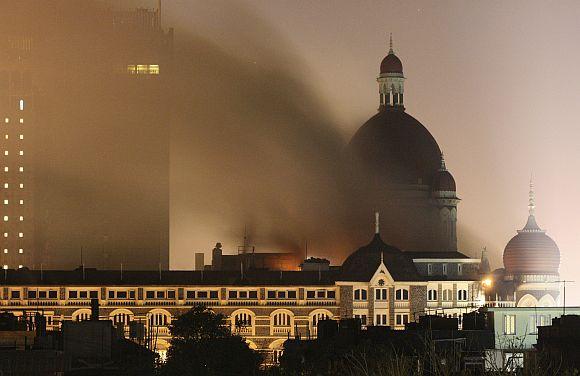
A report by Washinton-based think tank on 26/11 predicts that the Indo-Pakistan crisis is both unresolved and unfinished, and further attacks by Pakistan-based and Inter-Services Intelligence trained terrorists is inevitable.
A major report titled 'The Unfinished Crisis: US Crisis Management after the 2008 Mumbai Attacks', which is the first detailed account of how American diplomats, intelligence officers and law enforcement professionals reacted to the horrific terror strikes on November 26, 2008 has predicted that the India-Pakistan crisis remains both unresolved and unfinished and further attacks by Pakistan-based terrorists is inevitable, particularly since there is once again an emerging rapprochement between New Delhi and Islamabad.
Also READ: 'India remains vulnerable to spectacular attacks'
The case study, published by The Stimson Center, the only Washington DC think-tank, which has an exclusive programme on confidence building measures in South Asia, said, "Indian grievances remain unresolved, while Pakistani policies remain dangerously subject to miscalculation."
The study includes interviews with the then Secretary of State Condoleezza Rice, erstwhile National Security Adviser Stephen Hadley, former ambassadors to India and Pakistan David Mulford and Anne Patterson respectively, and several other senior United States officials, who were involved in US crisis management in the aftermath of the 26/11 attacks.
"Further attacks in India by extremists trained, equipped, and based in Pakistan, can be expected, making another crisis likely," it said.
...
For Rediff Realtime News on 26/11 click here
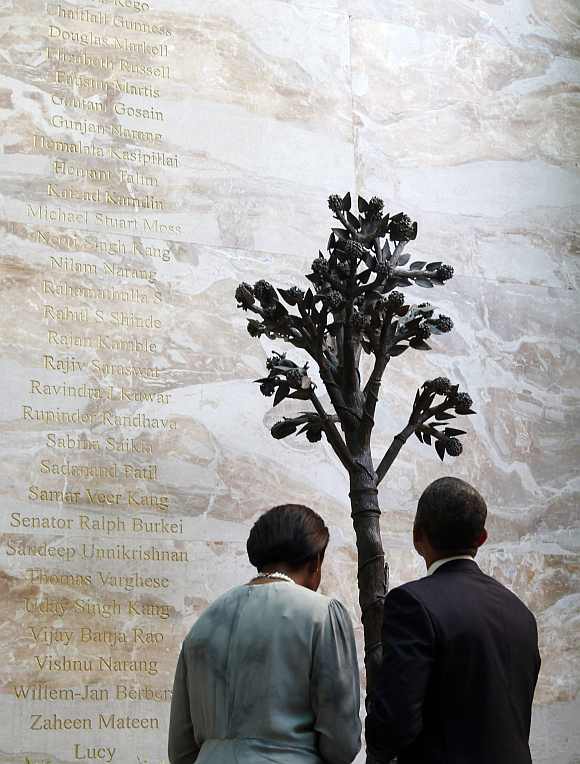
The report said that senior officials in the outgoing George Bush administration had prior experience in crisis management on the subcontinent and they executed a crisis management plan -- Plan A-- that included familiar elements: top-level diplomacy, high-level official visits, playing for time, and close cooperation with British officials. But it said, "There was no Plan B."
The report said that in the words of a former senior official, Plan A was "first, to show support for India. The Bush administration was very popular with the Government of India, had plenty of capital in the bank. We went as a friend. In Pakistan, the message was to convey the seriousness of the situation, that Pakistan needed to 'own up' to the Laskar-e-Tayyiba."
What was needed, the case study said, according to the recollections of one participant, was for Pakistani confirmation that the terrorists were Pakistanis and trained in Pakistan. "For Pakistan to take responsibility ... to own up and do something...arrest people... look into who was behind the attacks," as New Delhi needed a face-saver, it added.
The report said apparently the reason there was no Plan B was because according to one senior official, "We didn't think we needed one," and there was a kind of hubris that Plan A just couldn't fail and that Washington could "keep a lid on the India-Pakistan situation."
One official had said, "My Plan B is always to make Plan A work because discussing fallbacks loses focus."
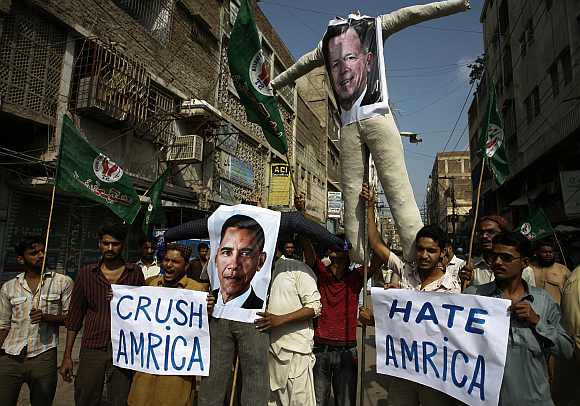
The report said that US crisis management at the time "gave unprecedented weight to sharing evidence with India and Pakistan," and noted that "a related innovation in managing this crisis was US forensics and intelligence assistance to Indian authorities investigating the attacks."
While acknowledging that US crisis management "was helped by improved US-Indian ties," it argued that it was "hampered by strained ties to Pakistan and poor civil-military relations within its leadership."
Thus it predicted that a continuation of these trends could reduce Washington's efficacy as an 'honest broker' in future crises.
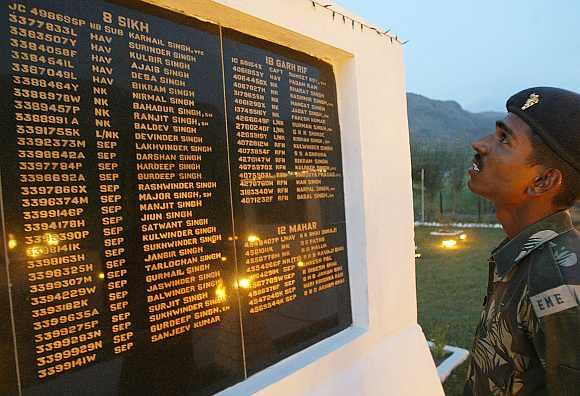
The report said that despite the spectacular nature of the 26/11 attacks and the considerable loss of life, "most US officials saw this crisis as less dangerous than the 1999 Kargil and the 2001-2002 'Twin-Peak's crises,' which was the term used in the study to describe two periods of high tension sparked by terrorist attacks.
"The Mumbai crisis carried risks of escalation, but the challenges facing US crisis managers were smaller in scope and duration," it said.
But the report noted, "US and Indian leaders had very little leverage on Pakistani officials to take serious, lasting steps against Pakistan-based groups and individuals linked to attacks on Indian soil. The aftermath of the 2008 Mumbai attacks confirmed anew that Pakistan's military, political, and judicial authorities could not -- or would not -- take punitive action against the perpetrators."
It also argued that US crisis management after the Mumbai attacks "was exemplary -- but it was effective largely because Indian political leaders did not wish to risk an open-ended war that could lead to uncontrolled escalation and jeopardise other equities," but acknowledged that "New Delhi's cost-benefit calculus could change."
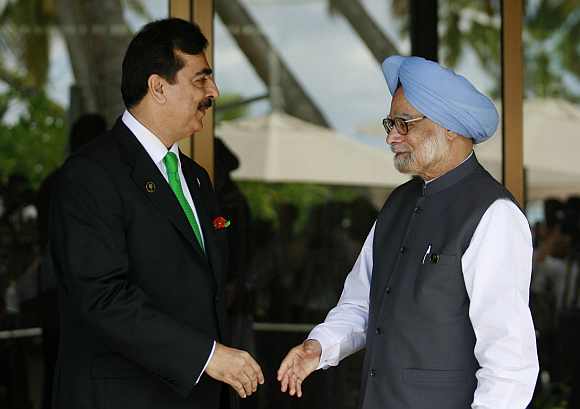
The report noted how at the time, Indian officials were genuinely conflicted about how to respond to Pakistan. "They certainly did not want to risk a nuclear exchange. They also wanted to avoid undercutting a new and fragile civilian government, having long ascribed Islamabad's bellicosity to military rule. But they also did not want their country to appear weak."
It quoted one US policy maker as saying, "Indians went from anger, to frustration, to bitterness, and then resignation in a matter of two weeks. I never heard anything in my circle that India needed to hit Pakistan. Those that did say they would just hit back. There was a feeling of hopelessness that India has no Pakistan foreign policy."
Another Bush administration official the report said offered another perspective on India's decision calculus that "the attacks gave the Indians the moral upper hand with Pakistan regarding Kashmir, so maybe they don't rush to war -- or even to mobilisation, as they did in 2001-2002."
The report said that "the mid-crisis presidential transition from the George W Bush to the Barack Obama administration had little effect on crisis management moves open -- or not open -- to Washington," noting that "the constraints on US leverage and diplomatic options were common to both White Houses."
It said "a key question will be how confidence Indian officials are of Washington's ability to influence Pakistan's security establishments in a crisis and how willing they remain to lean on Washington's good offices," and warned that "if they lose faith in US diplomatic clout, Indian officials may be more inclined to respond militarily in the event of a future attacks linked to Pakistan."
"Even if Washington has increased difficulty playing the role of an 'honest broker' on the subcontinent, there is no obvious substitute on the horizon for the US as crisis manager," it added.
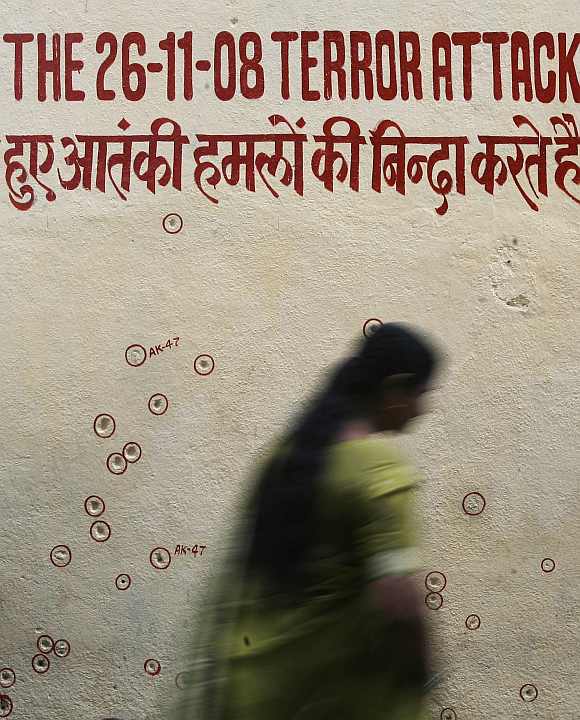
"The most effective crisis management playbook will be one that supports normalisation of ties between India and Pakistan," the report said, acknowledging that "paradoxically, such efforts at reconciliation are likely to prompt crisis-generating explosions designed to halt this process."
It said, "Terror attacks in India and Pakistan will occur, however, whether or not national leaders attempt to improve bilateral relations."
Thus, it opined, "Postponing efforts to seek more normal ties invites unending terror attacks and more unfinished crises, one of which could result in uncontrolled escalation.
Potential game-changers for US crisis management include an attack on the US homeland that could be traced back to Pakistan; the withdrawal of most US and NATO forces from Afghanistan; domestic political changes within Pakistan and further deterioration in US-Pakistan ties; changes in Indian political leadership; and strengthened Indian conventional military capabilities."
The report was authored by Polly Nayak, who retired in 2002 as a senior government executive, and Michael Krepon, co-founder of the Stimson Cente. Nayak retired after a wide-ranging intelligence career and being the intelligence community's most senior expert and manager on South Asia from 1995-2001. She is now an independent consultant. At the Stimson Center, Krepon directs the think tank's South Asia project and is the author or editor of 14 books including Nuclear Risk Reduction in South Asia and Escalation Control and the Nuclear Option in South Asia.
...